Many people carve out a career in agriculture because they are from a farming background and developed an interest in the sector from a young age. For many, it is a natural route to go down.
Hazel Rooney isn’t from a farming background. However, she encourages anyone with an interest in animals or agriculture to consider it for a career.
Pig industry is a very important sector to Ireland’s economy and food production. It ranks third in importance for agricultural enterprises in Ireland and employs over 8,000 people. Last year’s figures show the total economic contribution of the industry was €1.491bn to the Irish economy.
Non farming background
Having gone to an all-girls secondary school in Wicklow town, ag science wasn’t a subject on offer at the time Hazel was completing her Leaving Cert.
Growing up in a small village in Ashford, Co Wicklow, Hazel says: “I wasn’t lucky enough, myself, to grow up on a farm.”
Living in the countryside, however, she found herself surrounded by farming and livestock from a young age.
“I always had a love for animals and the outdoors,” she tells Irish Country Living. “My parents would have me thrashing around in a mucky pair of wellies at the weekend!”
What’s meant for you won’t pass you
Initially, Hazel wanted to study veterinary in college, but she missed out on the CAO points in 2012. She got offered her second choice, which was BAgrSc (Bachelors in Agricultural Science) Animal Science in University College Dublin (UCD).
Thinking the animal science degree would satisfy her interest in animals, Hazel thought she might use it as a back door to get into veterinary.
“Four years later, I was absolutely thrilled with the degree. I don’t think I would have cut it out as a vet compared to what I am doing now,” she says.
Grá for Pigs
While completing her mandatory 15-week placement during the third year of her degree, Hazel discovered a love for pigs. In the animal science course, students spend four-week blocks on different farm enterprises, which Hazel spent on Joe Healy’s pig farm in Co Wexford. “That’s really where my kind of grá for pigs began, that was my first time ever on a pig unit,” she says.

Hazel Rooney.
“I think the first day or two, I was probably in shock getting used to the smell, the heat, the whole lot. But I absolutely loved it. I kind of threw myself into all aspects of the farm.”
Hazel was impressed with how efficiently the unit could be run and the level of detail and expertise that is required.
Deciding to undertake a PhD
When returning to college for her final year, Hazel decided to speak with one of her lecturers – Professor John O’Doherty – to see what PhD opportunities were coming up in pig research.
“I was just mad for it. I really wanted to stick down that route,” she explains.
After applying for a few projects, she was fortunate enough to get a PhD Walsh fellowship working in the Teagasc pig development unit in Moorepark with UCD.
Reflecting on her PhD experience, Hazel tells Irish Country Living that it was one of the most challenging times of her life.
“But on the flip side, it is also one of the most rewarding achievements I have to date,” she adds. “I genuinely believe it has shaped the person I am today, both professionally and personally.”
Should you consider a PhD?
A number of people have asked Hazel at career fairs if they should do a PhD, and she always tells them it is a massive undertaking.
She advises: “You’re committing to a very specific research project for four years.
“Firstly, just make sure you find a project that you’re really interested in and it’s a subject area you like and are somewhat familiar with. Secondly, always try to speak to someone who’s previously done a PhD so you can get a feel for how they found it. Were they crying uncontrollably for four years or did they enjoy it?” She jokes.
“Even though I say it’s a tough couple of years, I’ve never once regretted doing it.”
Maternal feeding strategies
Throughout her PhD, Hazel’s research focused on sow nutritional management strategies to increase the number of viable pigs born alive and to reduce pre-weaning mortality.
“What they’ve seen over the last couple years is these really hyper-prolific sows are having huge litter sizes, which is good in terms of getting more piglets born, but you [also] get a lot of consequences,” she explains.
The main study was looking at different types of dietary strategies that would increase piglet birth weight and affect cluster milk quality and lifetime growth performance. The aim is to get the most from the sow and counteract some of the challenges they see with these larger litters.
Technical pig co-ordinator
When her time in research ended, Hazel started with Alltech as technical pig coordinator in 2019.
Her role is split between two sections: she is responsible for the Irish pig business (looking after key accounts in Ireland) and is also the technical support lead for Alltech’s European pig team.
“I’m responsible for the coordination and development of technical solutions for pigs in the Irish and European marketplace. The solutions we are working with are focused on key areas such as gut health and immunity, and we do a lot of work on sustainability, mycotoxin management and feed efficiency,” she explains.
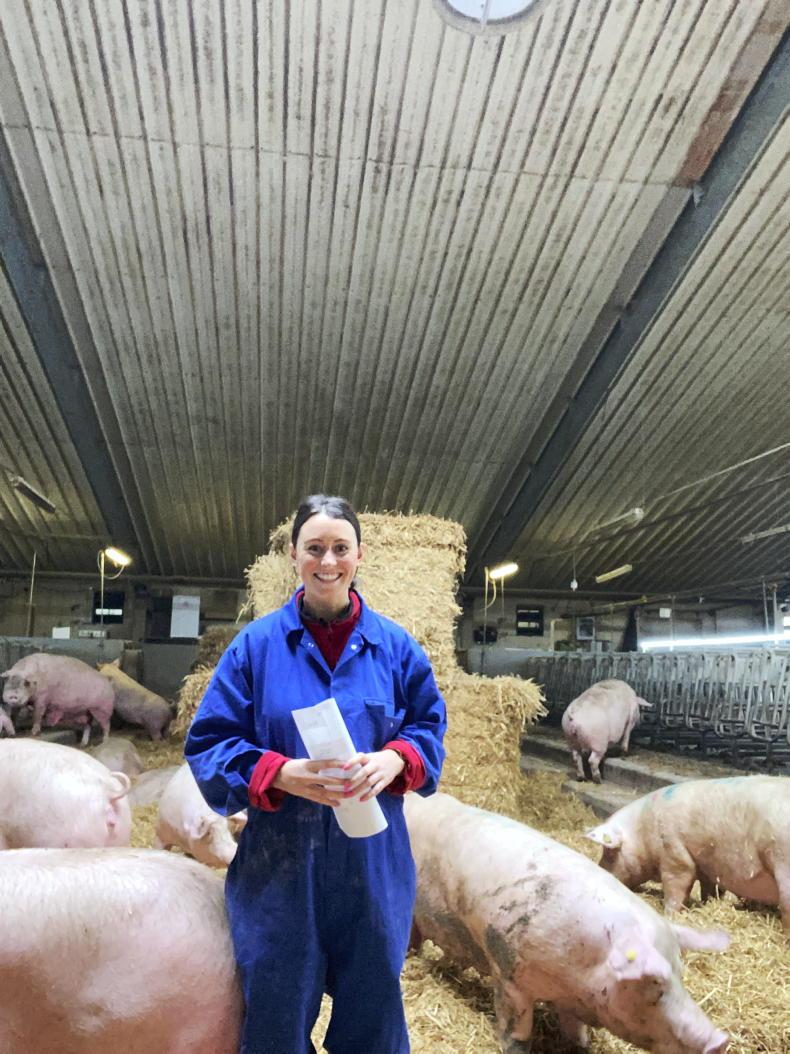
Hazel Rooney.
In the wider European context, she is working with other pig teams and supporting them with different projects. This has given her the opportunity to travel to the UK, US, Spain and Denmark.
Ireland’s pig industry
“I think it honestly is such a great industry to be part of and I always feel, maybe it doesn’t get the recognition or the credit that it deserves. I think people have this idea, maybe, that the pig industry isn’t a very attractive or glamorous industry to get into compared to dairy, for example,” Hazel explains.
“At the minute we’re seeing fewer people getting into pigs, whether that be as a pig producer themselves or working in the wider pig industry. But it’s a hugely important industry.
“It’s not just being a pig producer, there are other jobs in terms of the feed industry, transport companies, vets, breeding companies, the Teagasc advisory team, there are huge amounts of roles and they are crying out for young enthusiastic people to get into them. It would be amazing to see that. As a woman in ag, I am always trying to encourage young girls to get into the sector as well.”
Paving a Career in Agriculture
“I really don’t think it matters whether you come from a farming background or not. I think if you have a passion for agriculture and you’re willing to work hard, you can pave a fantastic career path, whether that’s in the pig industry or the wider ag industry,” she adds.
One thing the founder of Alltech, the late Doctor Pierce Lyons, always said that really resonated with Hazel was “people don’t care how much you know until they know how much you care”.
“So, I always try to remember that, try and give 100% to your role and be passionate about genuinely helping people and trying to make a difference to those that you actually work with,” she says.
Read more
Meet the travel bursary students on tour
Students take environmental action
Many people carve out a career in agriculture because they are from a farming background and developed an interest in the sector from a young age. For many, it is a natural route to go down.
Hazel Rooney isn’t from a farming background. However, she encourages anyone with an interest in animals or agriculture to consider it for a career.
Pig industry is a very important sector to Ireland’s economy and food production. It ranks third in importance for agricultural enterprises in Ireland and employs over 8,000 people. Last year’s figures show the total economic contribution of the industry was €1.491bn to the Irish economy.
Non farming background
Having gone to an all-girls secondary school in Wicklow town, ag science wasn’t a subject on offer at the time Hazel was completing her Leaving Cert.
Growing up in a small village in Ashford, Co Wicklow, Hazel says: “I wasn’t lucky enough, myself, to grow up on a farm.”
Living in the countryside, however, she found herself surrounded by farming and livestock from a young age.
“I always had a love for animals and the outdoors,” she tells Irish Country Living. “My parents would have me thrashing around in a mucky pair of wellies at the weekend!”
What’s meant for you won’t pass you
Initially, Hazel wanted to study veterinary in college, but she missed out on the CAO points in 2012. She got offered her second choice, which was BAgrSc (Bachelors in Agricultural Science) Animal Science in University College Dublin (UCD).
Thinking the animal science degree would satisfy her interest in animals, Hazel thought she might use it as a back door to get into veterinary.
“Four years later, I was absolutely thrilled with the degree. I don’t think I would have cut it out as a vet compared to what I am doing now,” she says.
Grá for Pigs
While completing her mandatory 15-week placement during the third year of her degree, Hazel discovered a love for pigs. In the animal science course, students spend four-week blocks on different farm enterprises, which Hazel spent on Joe Healy’s pig farm in Co Wexford. “That’s really where my kind of grá for pigs began, that was my first time ever on a pig unit,” she says.

Hazel Rooney.
“I think the first day or two, I was probably in shock getting used to the smell, the heat, the whole lot. But I absolutely loved it. I kind of threw myself into all aspects of the farm.”
Hazel was impressed with how efficiently the unit could be run and the level of detail and expertise that is required.
Deciding to undertake a PhD
When returning to college for her final year, Hazel decided to speak with one of her lecturers – Professor John O’Doherty – to see what PhD opportunities were coming up in pig research.
“I was just mad for it. I really wanted to stick down that route,” she explains.
After applying for a few projects, she was fortunate enough to get a PhD Walsh fellowship working in the Teagasc pig development unit in Moorepark with UCD.
Reflecting on her PhD experience, Hazel tells Irish Country Living that it was one of the most challenging times of her life.
“But on the flip side, it is also one of the most rewarding achievements I have to date,” she adds. “I genuinely believe it has shaped the person I am today, both professionally and personally.”
Should you consider a PhD?
A number of people have asked Hazel at career fairs if they should do a PhD, and she always tells them it is a massive undertaking.
She advises: “You’re committing to a very specific research project for four years.
“Firstly, just make sure you find a project that you’re really interested in and it’s a subject area you like and are somewhat familiar with. Secondly, always try to speak to someone who’s previously done a PhD so you can get a feel for how they found it. Were they crying uncontrollably for four years or did they enjoy it?” She jokes.
“Even though I say it’s a tough couple of years, I’ve never once regretted doing it.”
Maternal feeding strategies
Throughout her PhD, Hazel’s research focused on sow nutritional management strategies to increase the number of viable pigs born alive and to reduce pre-weaning mortality.
“What they’ve seen over the last couple years is these really hyper-prolific sows are having huge litter sizes, which is good in terms of getting more piglets born, but you [also] get a lot of consequences,” she explains.
The main study was looking at different types of dietary strategies that would increase piglet birth weight and affect cluster milk quality and lifetime growth performance. The aim is to get the most from the sow and counteract some of the challenges they see with these larger litters.
Technical pig co-ordinator
When her time in research ended, Hazel started with Alltech as technical pig coordinator in 2019.
Her role is split between two sections: she is responsible for the Irish pig business (looking after key accounts in Ireland) and is also the technical support lead for Alltech’s European pig team.
“I’m responsible for the coordination and development of technical solutions for pigs in the Irish and European marketplace. The solutions we are working with are focused on key areas such as gut health and immunity, and we do a lot of work on sustainability, mycotoxin management and feed efficiency,” she explains.

Hazel Rooney.
In the wider European context, she is working with other pig teams and supporting them with different projects. This has given her the opportunity to travel to the UK, US, Spain and Denmark.
Ireland’s pig industry
“I think it honestly is such a great industry to be part of and I always feel, maybe it doesn’t get the recognition or the credit that it deserves. I think people have this idea, maybe, that the pig industry isn’t a very attractive or glamorous industry to get into compared to dairy, for example,” Hazel explains.
“At the minute we’re seeing fewer people getting into pigs, whether that be as a pig producer themselves or working in the wider pig industry. But it’s a hugely important industry.
“It’s not just being a pig producer, there are other jobs in terms of the feed industry, transport companies, vets, breeding companies, the Teagasc advisory team, there are huge amounts of roles and they are crying out for young enthusiastic people to get into them. It would be amazing to see that. As a woman in ag, I am always trying to encourage young girls to get into the sector as well.”
Paving a Career in Agriculture
“I really don’t think it matters whether you come from a farming background or not. I think if you have a passion for agriculture and you’re willing to work hard, you can pave a fantastic career path, whether that’s in the pig industry or the wider ag industry,” she adds.
One thing the founder of Alltech, the late Doctor Pierce Lyons, always said that really resonated with Hazel was “people don’t care how much you know until they know how much you care”.
“So, I always try to remember that, try and give 100% to your role and be passionate about genuinely helping people and trying to make a difference to those that you actually work with,” she says.
Read more
Meet the travel bursary students on tour
Students take environmental action






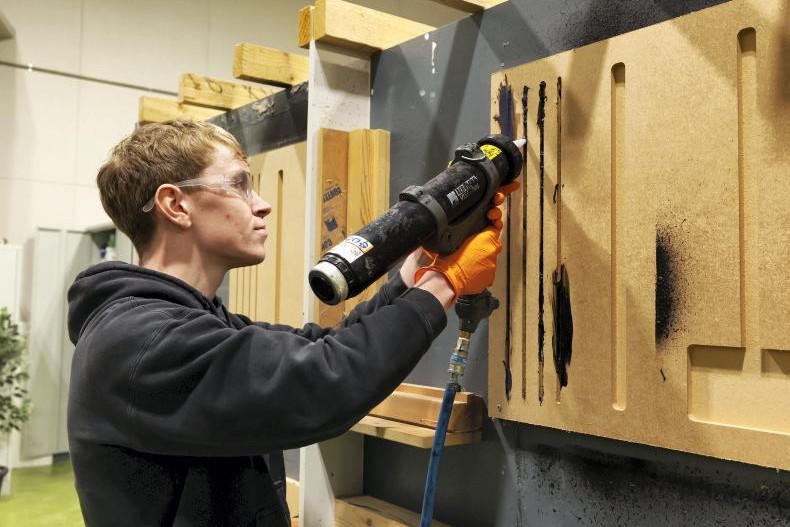
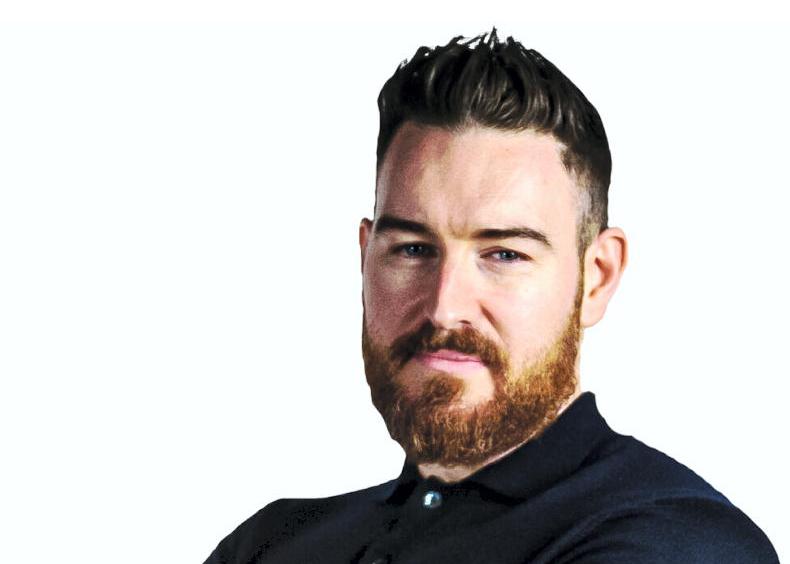
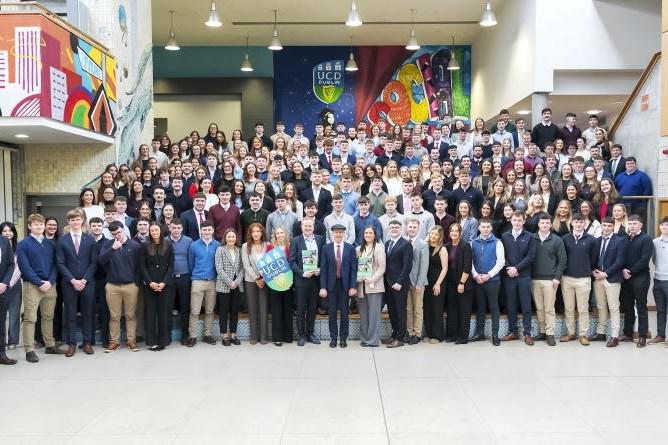
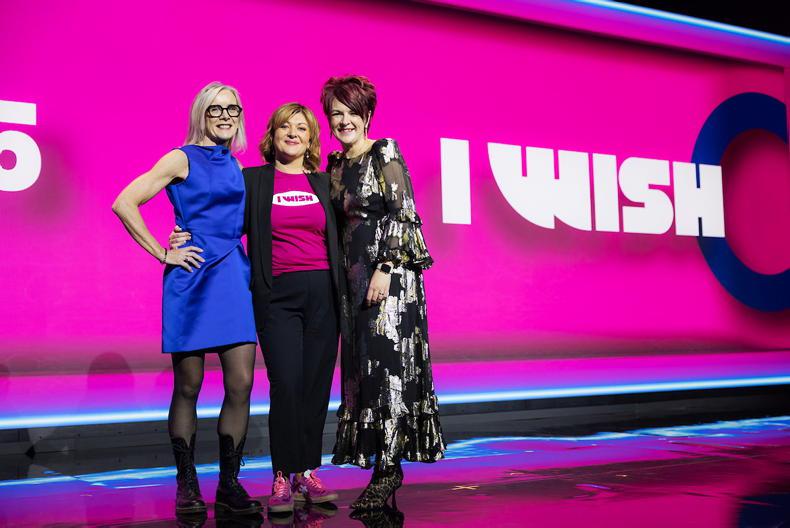
SHARING OPTIONS